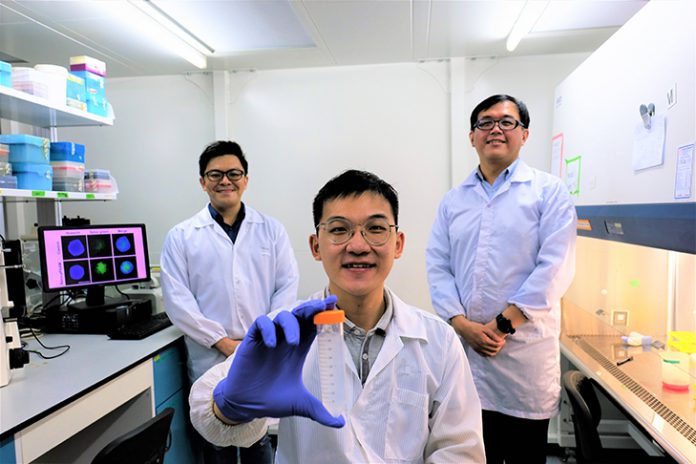
Researchers at Nanyang Technological University Singapore (NTU Singapore) recently developed a ‘Trojan Horse’ that causes cancer cells to self-destruct without the use of any drugs.
In 1188 BC, the ancient Greeks used a Trojan Horse to sneak in their army into the city of Troy thus, winning a decade-long war.
You might have heard the ancient tale in a history lesson in school. Or, maybe seen the famous movie ‘Troy’, starring Brad Pitt.
In today’s world, a Trojan Horse means any trick or strategy that invites an enemy into a secure place, or, uses deception to destroy the enemy.
Nano-pPAAM – The Trojan Horse Nanoprotein
Scientists at NTU Singapore recently created a ‘Trojan Horse’ nanoprotein by coating a nanoparticle with L-phenylalanine.
Much like the city of Troy, the cancer cells absorb the amino acid and unknowingly let in the anticancer nanoparticle resulting in self-destruction. Cancer cells self-destruct as a result of increased production of reactive oxygen species (ROS).
L-phenylalanine is an essential amino acid that our bodies cannot produce themselves. It’s absorbed from food sources such as meat and dairy products.
Cancer cells rely on amino acids for tumor growth. تعليم لعبة بوكر Therefore, doctors suggest fasting and low-protein diets as an effective way to slow tumor growth. بلاك جاك 21 However, such dietary restrictions are difficult to implement across all patients.
Against conventional wisdom, our approach involved using the nanomaterial as a drug instead of as a drug-carrier. Here, the cancer-selective and killing properties of Nano-pPAAM are intrinsic and do not need to be ‘activated’ by any external stimuli. The amino acid L-phenylalanine acts as a ‘trojan horse’ – a cloak to mask the nanotherapeutic on the inside
Assistant Professor Dalton Tay (lead study author)
With a diameter of just 30 nanometers, Nano-pPAAM is approximately 30,000 times smaller than a human hair.
80% of Cancer Cells Killed by Nanoparticle
Recently, a study published in the journal Small looked at the effectiveness of the ‘Trojan Horse’ nanoparticle. To test its efficacy, researchers conducted tests in the lab and on mice.
Results of the study showed Nano-pPAAM killed 80% of breast, skin, and gastric cancer cells in mice compared to conventional anticancer drugs. Additionally, it reduced tumor growth by around 60% in mice with human triple-negative breast cancer cells. لعب لربح المال
Associate Professor Tan Ern Yu, a breast cancer specialist, believes the ‘Trojan Horse’ technique holds the potential to treat drug-resistant cancers.
Researchers are now looking to further develop the nanoparticle to help it target specific cancer types and increase its efficiency in killing tumors.
Reference:
Wu, Zhuoran, et al. “Potent‐By‐Design: Amino Acids Mimicking Porous Nanotherapeutics with Intrinsic Anticancer Targeting Properties.” Small, vol. 16, no. 34, 2020, p. 2003757., doi:10.1002/smll.202003757.



